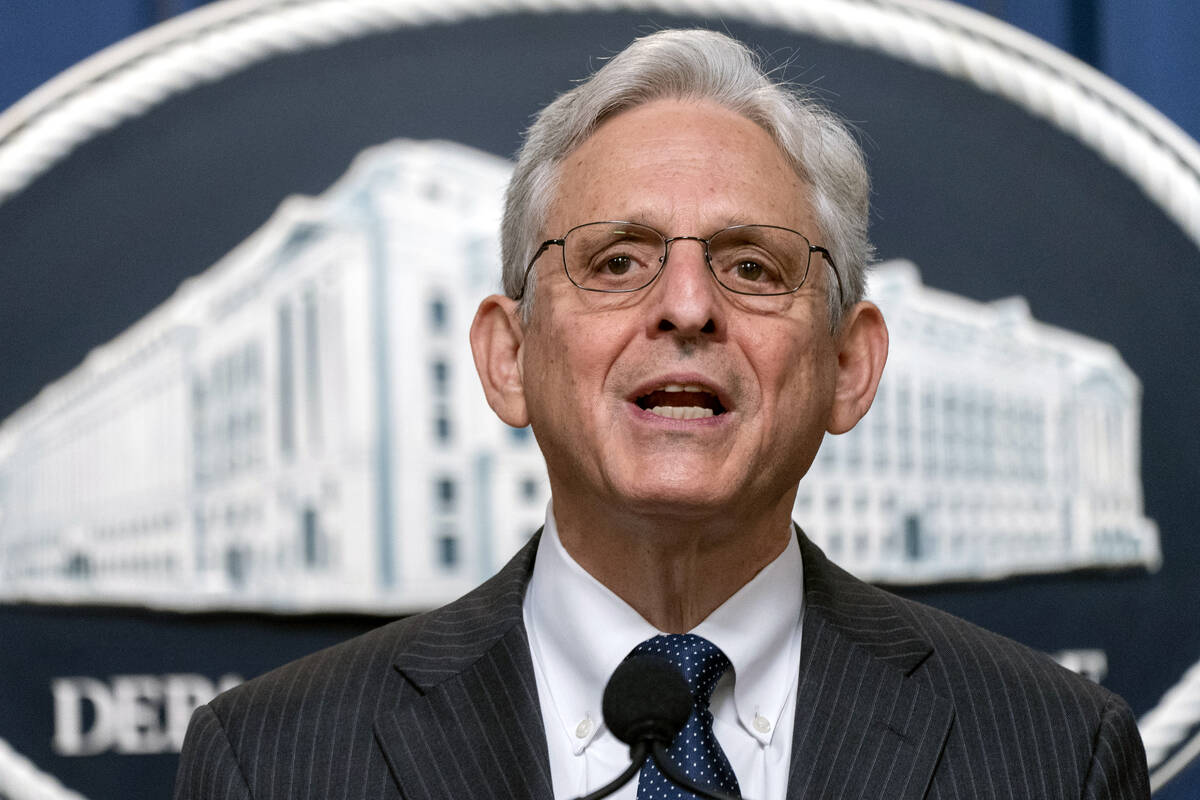US attorney general changes rules on reporter searches
WASHINGTON — Attorney General Merrick Garland announced guidelines restricting federal prosecutors from seizing telephone records and notes from reporters — a move applauded this week by media advocates who remain concerned about federal, state and local government practices.
Garland on Wednesday issued revisions to the Justice Department’s regulations on obtaining information and records from the news media acting within the scope of their duties.
The revisions made permanent the changes in policy first announced by Garland on June 19, 2021, according to the Justice Department.
“These regulations recognize the crucial role that a free and independent press plays in our democracy,” Garland said in a statement outlining the permanent policy changes.
“Because freedom of the press requires that members of the news media have the freedom to investigate and report the news, the new regulations are intended to provide enhanced protection to members of the news media from certain law enforcement tools and actions that might unreasonably impair newsgathering,” Garland said.
Bipartisan searches
President Joe Biden sought changes after it was revealed that the Justice Department under the Trump administration sought phone records of reporters at major newspaper and television outlets to identify sources of leaked information.
Reporters’ records, notes were also sought by law enforcement officials during the Obama administration.
Aggressive actions by the federal government to access reporters’ source information began during the George W. Bush administration, following the Sept. 11, 2001, terrorist attacks and heightened concern over national security.
The changes in policy announced this week were the result of a yearlong investigation, with input from federal prosecutors and media representatives, said Deputy Attorney General Lisa Monaco.
“The changes made to the guidelines are a big step forward for journalists,” said Katie Townsend, deputy executive director and legal director for the Reporters Committee for Freedom of the Press.
But the revisions in Justice Department policy apply only to federal prosecutors, not state, local or other jurisdictions, Townsend noted.
“There are different laws that apply at the state and local level,” Townsend told the Review-Journal.
Review-Journal reporter’s records sought
In Las Vegas, the Metropolitan Police Department has appealed a state judge’s decision to bar investigators from searching the personal devices of slain Las Vegas Review-Journal investigative reporter Jeff German, 69, who was found dead outside his home on Sept. 3.
Former Clark County Public Administrator Robert Telles is charged in the stabbing death of the journalist. He remains jailed without bail in the Clark County Detention Center.
Police seized German’s electronic devices during their investigation into his death and want to search them for information related to the case. The Review-Journal has fought the attempts in order to protect confidential sources German used in his work, and has suggested a special master with no local ties be appointed to examine the devices instead.
Police have appealed to the Nevada Supreme Court a state judge’s decision to issue an injunction in the case.
The Reporters Committee for Freedom of the Press has filed legal briefs in the case that support the Review-Journal’s argument that the materials are protected from compelled disclosure under the Nevada shield law and the federal Privacy Protection Act.
Federal rules don’t affect state case
The policy guidelines announced by Garland do not apply in the state case involving German.
But the First Amendment issue and protection of journalists to perform their watchdog role over government is the same.
Townsend said the Reporters Committee for Freedom of the Press “is very focused on protecting reporter source communications” in all jurisdictions. The committee has involvement in cases in other states, such as California.
Media advocates hailed the Garland announcement on Justice Department policy protecting journalists from legal tactics to access source information, but media executives and advocates noted that procedures and guidelines could change with future administrations.
Contact Gary Martin at gmartin@reviewjournal.com. Follow @garymartindc on Twitter.























